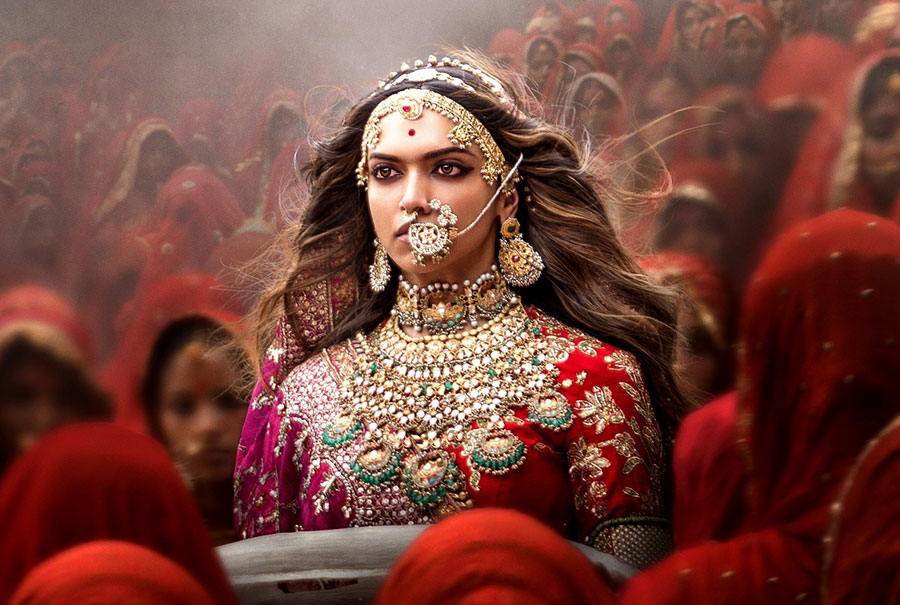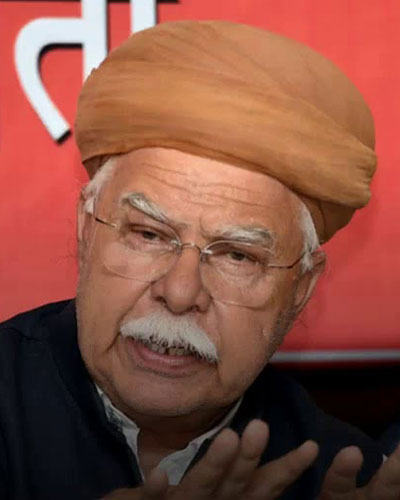ASIA’S ACQUITTAL WELCOMED IN UK
- 10 Nov - 16 Nov, 2018

The dispute simmering in India over the release and alleged contents of the film Padmavati, running almost parallel with the unrest in Pakistan fanned by followers of an extreme right wing group, has now raised its head in the UK. The movie was not passed by the Indian film censor board but the British Board of Film Classification (BBFC) passed the film for public viewing with a 12A rating. The 12A rating is for movies shown in cinema halls and basically implies that children under the age of 12 should not see the film and will not be allowed into the movie theatre unless accompanied by an adult. In case a child below the age of 12 is taken to see the movie, the consequences arising, if any, will be the responsibility of the adult.
When news spread that with the passing of the film by the British censors, the public in Britain would be viewing the ‘objectionable’ film, Hindu fundamentalists in India threatened British movie halls which dare to screen the movie. A leader of a group called the Karni Sena went on an Indian TV channel and was quoted saying: “We will go to an international court and call for the film to be banned. I call on my Rajput brothers and Hindus in the UK to protest against screening the film there… I would have even gone myself to the UK but let me tell you, whichever cinema screens the film, will be burned.” In fact, the person making the threat revealed that he would have carried out the act himself but the Indian government has confiscated his passport, effectively grounding him.

Prior to the enunciation of this chilling threat, one so-called local leader of the ruling BJP party in India had even gone to the extent of offering a huge reward for the heads of the leading actress Deepika Padukone and director Sanjay Leela Bhansali. This was followed by a threat for cutting off Miss Padukone’s nose which she must be regarding as a vital asset.
But the Rajput ‘brothers in the UK’ reacted immediately and have started a move to try and ensure that the movie is not screened here, although they are at pains to mention that they will be expressing their views only through peaceful means. That caveat is essential unless you want to see the inside of a police cell.
The Rajput Samaj of UK wrote to the BBFC pointing out that Padmavati is a revered figure in India and that she represented national pride, rather like the figure of King Arthur in Britain. The Samaj claimed in its letter that the directors of the film had tried to glorify Alauddin Khilji and that such efforts were similar to glorifying ISIS terrorists. They went on to add “We must stand up against the glamorisation of plundering, looting, and other barbaric acts,” rather in keeping with the extremist view in India that sees its Muslim rulers who ruled for well-nigh 800 years, as plunderers and looters. It urged BBFC to find the ‘right historians’ who can “watch the film and stop the character assassination of Indian icons.”
The nonsensical content of all this acquires even greater standing when it appears that Rani Padmini or Padmavati was, in all probability, a fictional figure who never really existed. The story goes that Padmavati was an exceptionally beautiful princess of the Singhal kingdom, covered by modern day Sri Lanka. The Rajput ruler of Chittor, Ratan Sen, heard about her from a talking parrot; it is just as well for the parrot that this is supposed to have happened some 700 years ago for today the parrot would have had its head knocked off for being an ISI spy. In any case, the Rajput ruler set off in quest of Padmavati, who, unlike the parrot, was distinctly unlucky to have been born so long ago as otherwise she might well have become India’s first female superstar, beating Hema Malini to it.
After a difficult trip during which many adventures befell the Rajput king, he won Padmavati’s hand and brought her to Chittor. But the ruler of Delhi, Alauddin Khilji also heard of Padmini’s beauty, albeit this time not through the services of the parrot. Khilji then laid siege to Chittor to obtain Padmavati. Chittor finally fell to Khilji but Padmavati and her companions chose to commit ‘jauhar’ or self-immolation to protect their honour and the men died fighting on the battlefield. Ratan Sen had already been killed in a duel by one Devpal, the king of Kumbhalner, also one of Padmini’s innumerable admirers. Alauddin’s siege of Chittor is certainly a historical event but that seems to be as much historical support that is available for the story. There is more than just an element of irony in the fact that the story of Padmavati was first penned in around 1540 CE during the reign of Akbar the Great by Malik Muhammad Jayasi, a Muslim, during the reign of a great Muslim emperor!
Beyond all this lies the question: how is the British government going to deal with Indians telling them what to show and what not to show on a British cinema screen? Does the right to freedom of speech go as far as it was allowed to go over the issue of the Dutch cartoons? Is it acceptable to allow a foreign citizen to issue threats of burning a movie theatre or theatres in the UK? Will Karni Sena members be allowed to enter the UK in the future? So far, there has been no response to any of these queries from the British government, and there is nothing to suggest that a response is in the making. •
COMMENTS